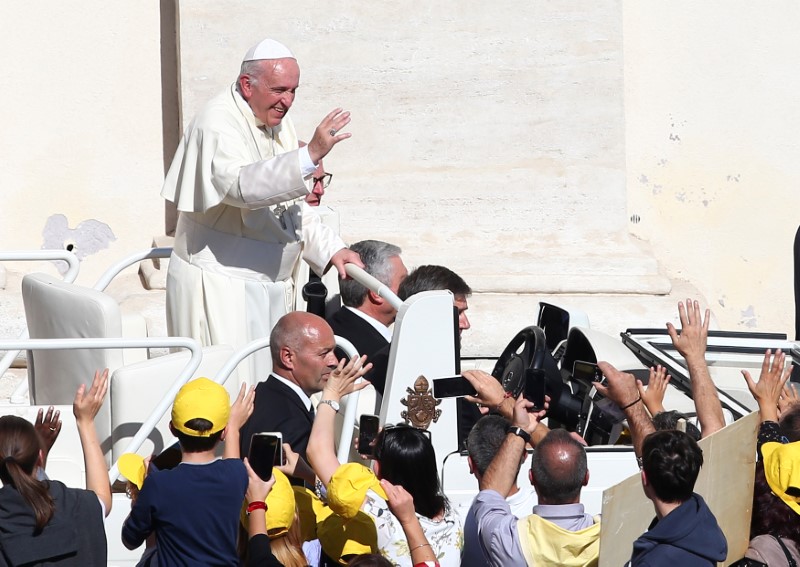
A Kurdish Peshmerga fighter is seen in the Southwest of Kirkuk, Iraq October 13, 2017. REUTERS/Ako Rasheed
October 15, 2017
By Maher Chmaytelli and Ahmed Rasheed
BAGHDAD (Reuters) – Kurdish Peshmerga fighters rejected a warning from an Iraqi paramilitary force to withdraw from a strategic junction south of Kirkuk, which controls the access to some of the region’s main oilfields, a Kurdish security official told Reuters on Sunday.
Meanwhile, Iranian Major General Qassem Soleimani arrived in Iraq’s Kurdistan region for talks about the escalating crisis between the Kurdish authorities and the Iraqi government following last month’s Kurdish independence referendum.
Soleimani is the commander of foreign operations for Iran’s elite Revolutionary Guards, a military corp providing training and weapons to Iraqi paramilitary groups backing the Shi’ite-led government in Baghdad, known as Popular Mobilisation.
He arrived in the Kurdish region Saturday, a Kurdish official said.
Popular Mobilisation had given the Peshmerga until midnight local time (2100 GMT Saturday) to leave a position north of the Maktab Khalid junction, an official from the Kurdistan Regional Government’s (KRG) Security Council said.
Ali al-Hussaini, a spokesman for the paramilitary groups known as Hashid Shaabi in Arabic, told Reuters the deadline had expired without giving indications about their next move.
“We are waiting for new orders, no extension is expected,” he said.
The Kurdish position north of the junction controls the access to an important airbase and Bai Hassan, one of the main crude oil fields of the region, the KRG official said.
The city, the airbase and their immediate surroundings, including the oilfields, are under Kurdish control.
There were no clashes reported 14 hours after the deadline, but a resident said dozens of young Kurds took up arms and were deployed in the streets of Kirkuk with machine guns as the news of the warning spread.
The KRG and the Shi’ite-led central government in Baghdad are at loggerheads since the Sept. 25 vote, which delivered an overwhelming yes for Kurdish independence.
Kurdish authorities said on Friday they had sent thousands more troops to Kirkuk to confront Iraqi “threats.”
Iraqi Prime Minister Haider al-Abadi has repeatedly denied any plans to attack the Kurds.
Popular Mobilisation is a separate force from the regular army and officially reports to Abadi. It is deployed alongside the army south and west of Kirkuk.
Kirkuk, a city of more than one million people, lies just outside KRG territory but Peshmerga forces were stationed there in 2014 when Iraqi security forces collapsed in the face of an Islamic State onslaught. The Peshmerga deployment prevented Kirkuk’s oilfields from falling into jihadist hands.
The Baghdad central government has taken a series of steps to isolate the autonomous Kurdish region since its overwhelming vote for independence in the referendum, including banning international flights from taking off or landing there.
(Writing by Maher Chmaytelli, editing by G Crosse and Louise Heavens)

